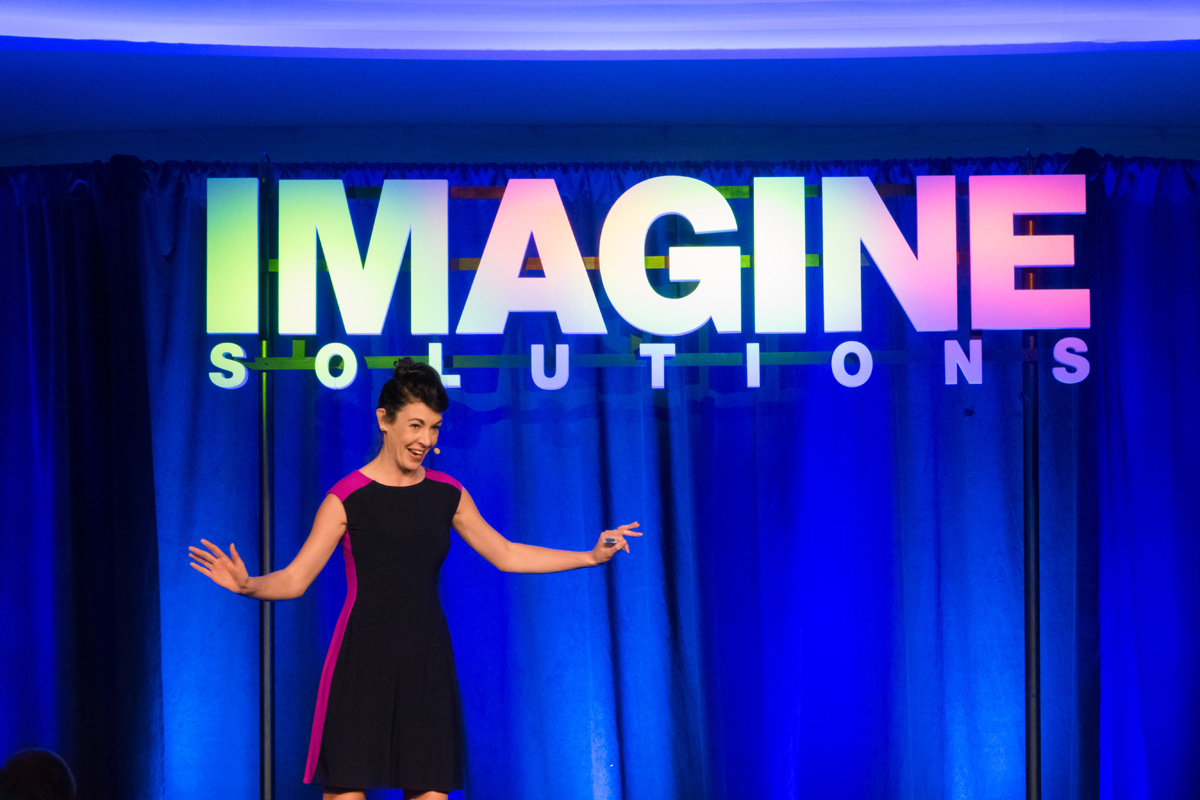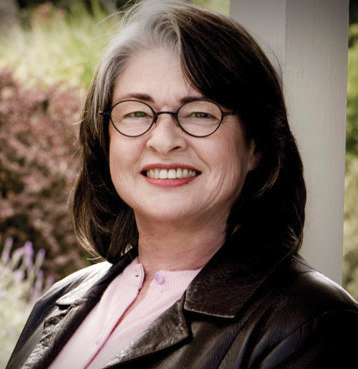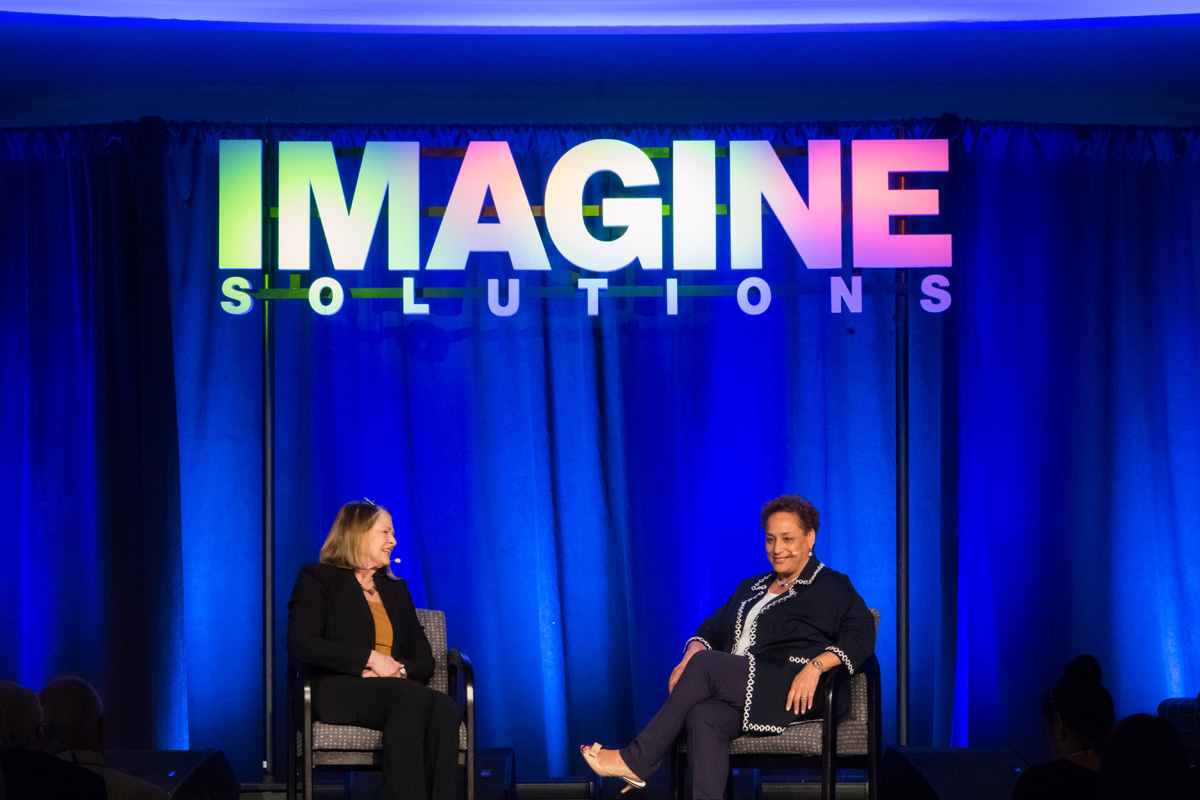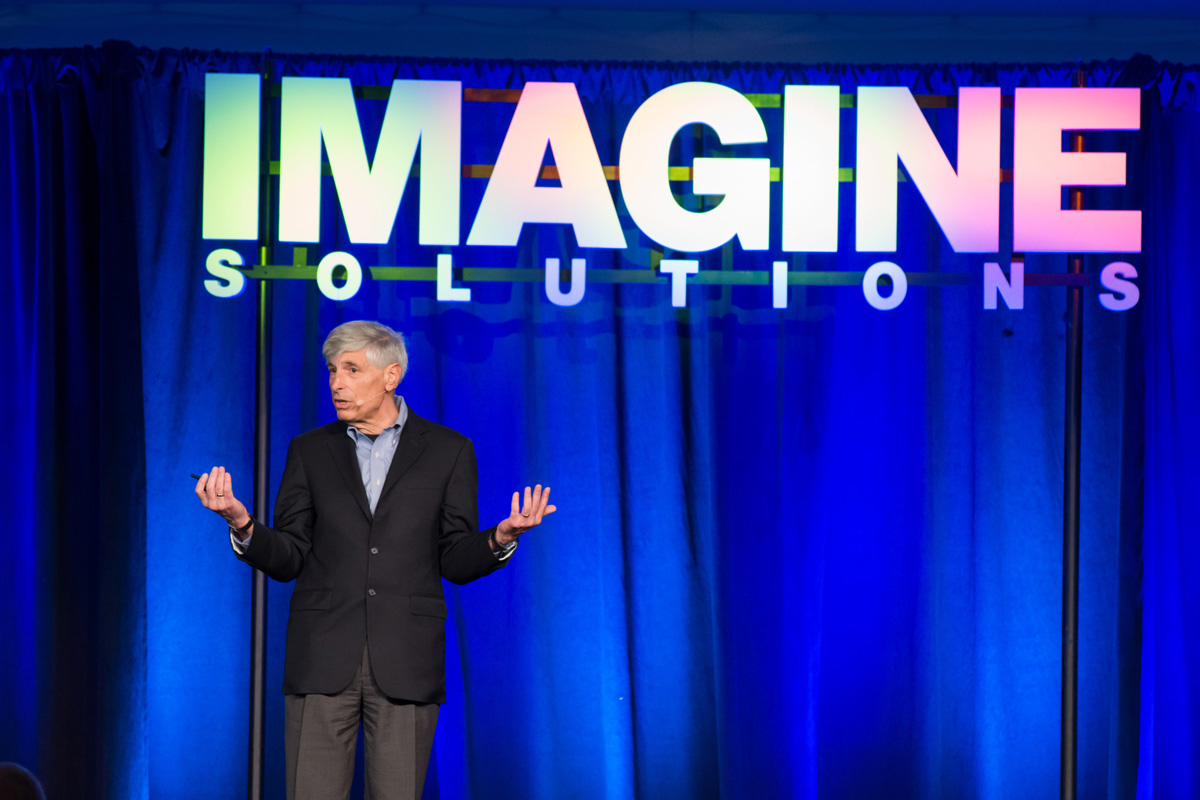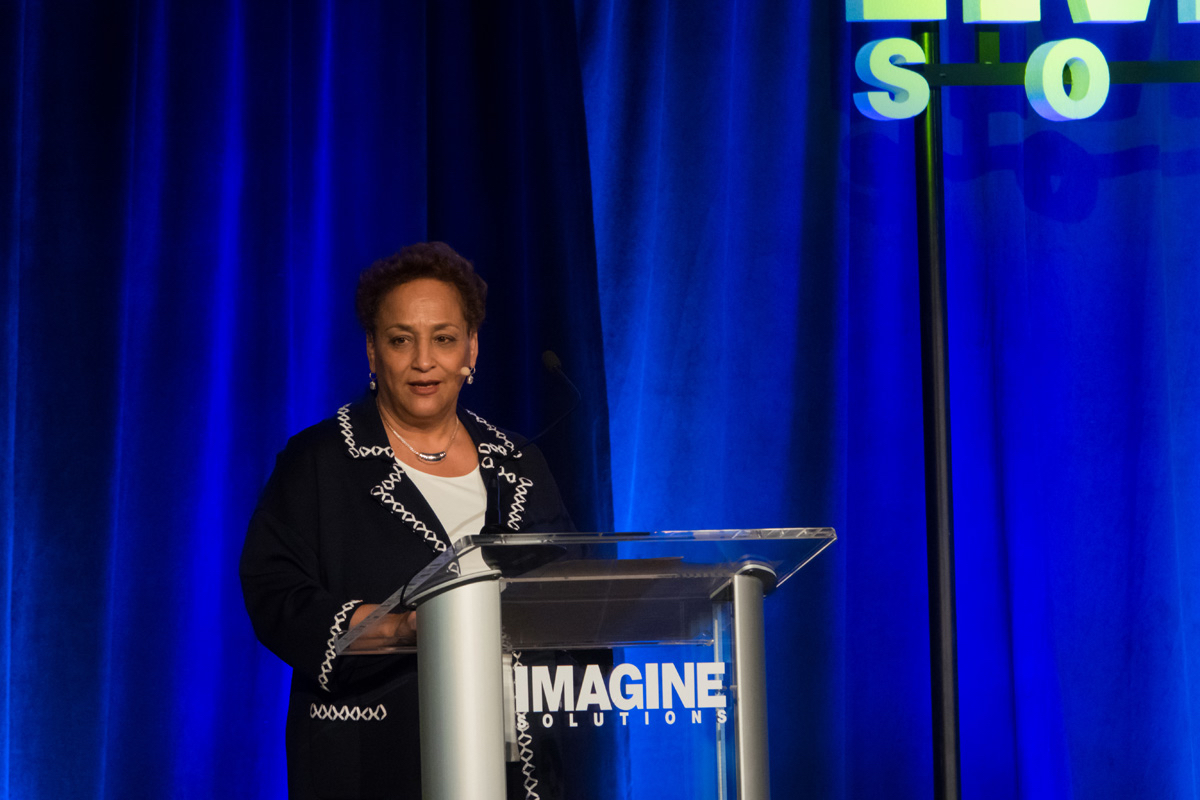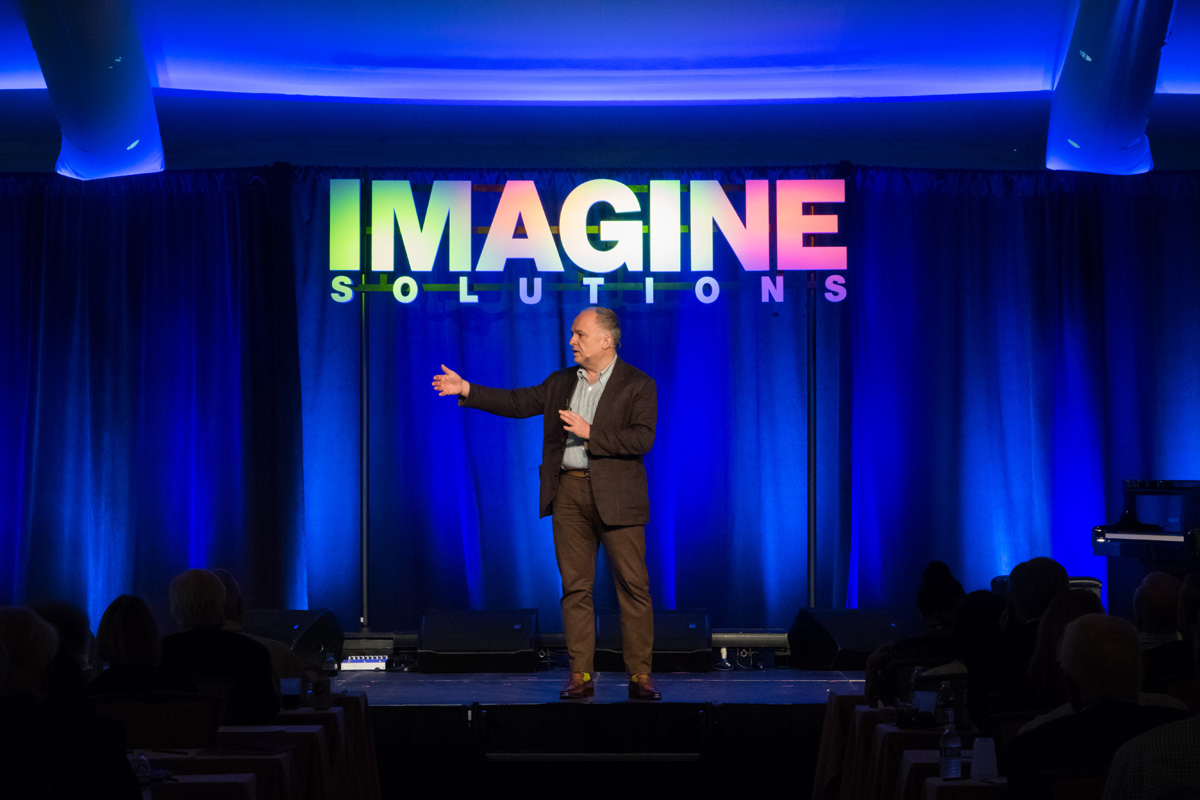Reducing the Societal Strain of Aging
As the founding director of the Stanford Center on Longevity, Laura Carstensen has unique insights into the reality that aging is not just about the elderly. It is no longer as uncommon for a person to live through their 90s and past the age of 100. For the youngest among us, 100 may become the new normal. Laura believes it is our duty to build a world that will support people throughout those long lives. Today’s longer lifespans are more about society and behavior than biology. We no longer face the same risks of death in childhood and early adulthood. Along with the opportunity to grow old comes the responsibility to create better, richer, and healthier longer lives.
00.00
now I had the pleasure of introducing dr. Laura Carstensen the professor of psychology and the Farley s Dickinson jr. professor of public policy at Stanford University where she serves as the founding director of the Stanford center on longevity and the principal investigator for the Stanford lifespan development laboratory please help me welcome Laura to the stage [Music] Thank You Joann and thank you all for being here and while I'm at it I want to thank Randy antic again for bringing us all together and doing such a fabulous job organizing an interesting and complex day I want to talk about longevity and as Joann said it is not
01.02
just about the elderly people are living longer than our grandparents ever would have imagined I'm going to make some guesses about your background your levels of education your affluence and society and based on that I'm going to tell you that the vast majority of you are going to sail through your 80s into your 90s and a lot of you are gonna live to be a hundred and beyond now let me ask for you to raise your hands if you've had a child or grandchild born in your family since the year 2000 okay let's talk about longevity because demographers predict that the majority of babies born in the developed world since 2000 will live to be 100 and beyond so the next time you're driving by a schoolyard and you look out the
02.01
window and you see those little ones swinging on the tire swings and playing on the play structures I want you to understand that you're looking at the first centenarians of the 22nd century they are here they are living among us and it is our job indeed I think it's our duty to build a world that will support them all the way through century long lives in the twentieth century life expectancy nearly doubled and developed nations around the world and although we do spend a lot of time these days talking about aging and increased life expectancies I think we usually miss how profound these changes actually are so let me zoom out for a minute and see if I can put it in perspective throughout
03.00
most of human evolution life was short we don't know exactly what life expectancy was as our ancestors were evolving on the African plains but the estimates ranged from eighteen to twenty barely long enough to ensure survival of the species an evolution acted on age in these early times and life expectancy got a little bit longer a little bit longer now fast-forward to the mid-1800s in this country life expectancy had reached the mid-30s go to 1900 life expectancy was 47 and then at the end of that century life expectancy was 77 today at 79 and it's continuing to go up this is an extraordinary development and it's not just individuals who were aging
04.00
societies are aging so we talk about aging societies or old societies they're societies where there's a greater proportion of older people than younger people and we're also experiencing aging societies it's not just because the people are living longer it's because across the same years that life expectancy was going up fertility rates fell by half so we had half as many children and we're living thirty years longer and that means that the distribution of age in the population has changed enormous li hundred years ago four percent of the populations over 65 today in this country it's 14 percent and it'll go to over 20% by 2030 so people ask me often how long can we live we see these changes going on there's life expectancy still going up
05.00
and the answer is we don't know we don't know what lifespan capacity is in humans we know what it is and fruit flies and Drosophila but we don't know how long individuals could conceivably live we do know that so far the reigning champ of longevity is a woman named Jean Louie coma a French woman who died in 1997 at the ripe old age of 122 and I love to tell people about John we come off because if any of you are a little uneasy about aging you should know about her she's a wonderful character she rode her bicycle till she was about 110 when she decided she should stop she smoked I'm not recommending it but I'd she did smoke and drink and she had a great sense of humor
06.01
she was interviewed by a journalist at the age of 120 and the journalist said to her what sort of a future do you envision and she looks her straight in the eye and she pauses and she says a very short one but my favourites call my story hands down is one about a property deal that she made at the ripe old age of 90 so calm I lived in the family home her family home in the French city of ro she was raised in that home and she had every intention of living her last days in that home but there was this young man this 47 year old lawyer and he really wanted to buy the house so he would make her an offer she would say no he would go away he'd come back a couple weeks later he'd make her a better offer she'd say no and this went on for some time and then one day he arrives on her doorstep and he says I've got a proposition for
07.00
you he says I will pay you $400 a month for the rest of your life if you will deed the house to me on your death she thinks about it she says okay and they drop a contract and have it signed and over the next 30 years this fellow paid her more than three times the value of her home she outlived him by two years but you know over the years they'd become friends and he attended her hundred and twentieth birthday party and they were overheard talking and she had turned to him at one point and she said we all make bad deals that's what a hundred and twenty plus can look like now there are scientists
08.05
today who are actively trying to slow or even stop aging and it's not a new idea I mean we used to sail off and ships searching for the Fountain of Youth and now we turn to laboratories to see what we can do about aging itself and we don't know what's going to come of those efforts but I can tell you with complete confidence that stretching out lifespan had nothing to do with the changes that we're living through today the changes we're living through today have to do with the odds of making it to old age what's happening is that populations previously shaped like pyramids with many young ones at the bottom winnowed
09.00
to a tiny peek at the top of survivors those pyramids are being reshaped into rectangles in 1900 and before death was common at all ages it was particularly common in childhood in 1920 five percent of babies born in the United States died before they reached five many more died by the time they reached 12 maternal mortality death during childbirth was also very high death was so common at all ages that wasn't particularly strongly associated in people's minds with old age and because of these early deaths our ancestors invested heavily in science and technology and behavior change to save the lives of the young ones we use science to discover the causes of diseases and the ways that
10.01
they were spread and then we developed widespread public health programs to inoculate young people against diseases they would never have to suffer we understood how contagious diseases were spread and put and placed the systematic disposal of waste garbage collection which greatly reduced the spread of disease we didn't stop there we purified the waterways we pasteurized milk we invested in agricultural technologies that ensured a steady food supply throughout the year and as we had fewer children we as a society said we should invest more in children and we put public education in place in every state in this great nation so that all children not just the privileged few could learn how to read and to write and
11.00
so that population pyramid being reshaped into a rectangle if you're the kind of person who can get chills from population statistics my people these are the ones that should do it because what it means is for the first time in human history the majority of babies born in the developed world are having the opportunity to grow old so here we are standing at a point in time where routinely four and five generations will be alive at the same time let me put that in perspective a 20 year old today a male 20 year old today has a better chance of having a living grandmother than a 20 year old male in 1900 of having a living mother and these
12.05
advances are extraordinary cultural achievements extraordinary you might think that people would be out dancing in the streets cheering and shouting we're gonna live for a very long time it's more years more time to pursue our dreams to realize our goals to spend time with our loved ones but that's not been their response the response to aging at an individual and a societal level has been concerned there's a lot of hand-wringing about aging individually and societally this redistribution of age and the population is straining social programs and infrastructures and individuals are worried about themselves in their their their parents their loved ones
13.01
and how they will age so let me say two things about what we're learning about aging one is that the more we learn about aging the more new ones the story becomes many people think of aging as this slow steady process of decline not so we hear a lot about cognitive performance failing and slowing we get a little bit slower as we age in the uptake of new information but if you look at knowledge we know a lot more the older we are emotion emotional stability mental health improves with age older people are less likely to have any of the psychiatric disorders than younger people do with the exception of the dementia as a brain disease of old age and the state of older people the status of older people has been improving over historical time
14.01
dementia rates have been falling a lot over history since the 1970s every generation in the last 50 years that has arrived at old age at 65 every generation that's gotten there has been healthier than the one before it so we have a population that's growing people who are educated healthier than ever before and emotionally stable you know it's beginning to seem like older people may be the only natural resource that's actually growing now don't get me wrong we have a lot of work to do osteoporosis osteoarthritis stroke heart disease cancer which you'll hear a lot more about today these are challenges that we're not challenged as
15.01
a hundred years ago when people died very young under new challenges today and we need to invest in science like we never have before science is what got us here and we need science now to get us all the way through the best news of the day maybe that the potential of science today is breathtaking all we need is the dedication to invest in it and we will see lives begin to flourish but to really fully realize the gift of longer life and healthier life if we need to change the way we live and momentarily I'm going to introduce you to three colleagues who are leading thinkers about ways to change how we
16.00
think about life and work and family technology financial security they're leading innovators in these areas I'll introduce you to Professor Andrew Scott who is an economist at the London Business School and co-author of the hundred year life living and working in an age of longevity he's going to talk to us about the conceptions of work that are and need to change I'll introduce you to my esteemed colleague professor Philip piezo who is Dean of the School of Medicine at Stanford University until recently and when he stepped down he founded the distinguished careers Institute at Stanford it's a program and by the way many fellows from the program are here today it's a program where he brings to the university people who have lots of experience and have had distinguished
17.00
careers and he says come to Stanford for a year be students it's been an extraordinary transformative program at Stanford and he'll tell you more about that and I'll introduce you to mr. Stephen Johnston a Silicon Valley entrepreneur and technology expert who co-founded an organization called aging 2.0 it's an organization that invests in supports innovators who are developing businesses that will help to support long and healthy lives but before I leave I want to leave you with one idea the culture the social norms that guide us through life today are ones that evolved around lives that lasted about 50 years and the culture is one where we say you get an education early in life in the you work and raise families and then at the end you get a little bit of leisure
18.01
and you know this kind of model of life worked well for lives of 50 years they don't work for lives that last a hundred years it's time that we develop a new map of life one that has more flexibility that's less linear that has twists and turns and on ramps and off ramps many sabbaticals bite-sized courses online learning longer working lives and shorter working weeks time for family before grand Parenthood we can create a world where generations live and work side-by-side where work and education extend throughout most of life and we don't have to wait for leisure until the very end this is a world where older people will not be a drain on resources for the young rather they will be the resources for the young the
19.05
mission of the Stanford center on longevity is to create a world where the majority of people arrive at old age mentally sharp physically fit and financially secure it is an enormous undertaking but I assure you that the greatest risk of failure is setting the bar too low thank you for your time [Applause]

